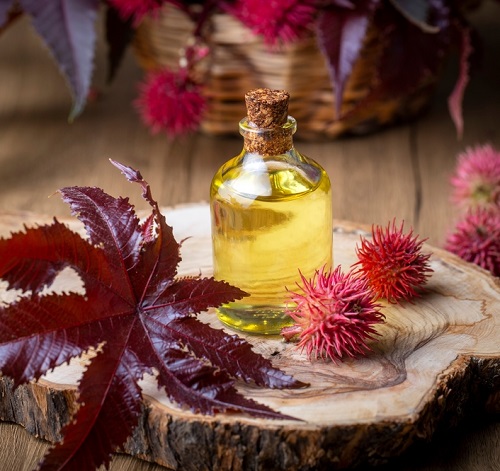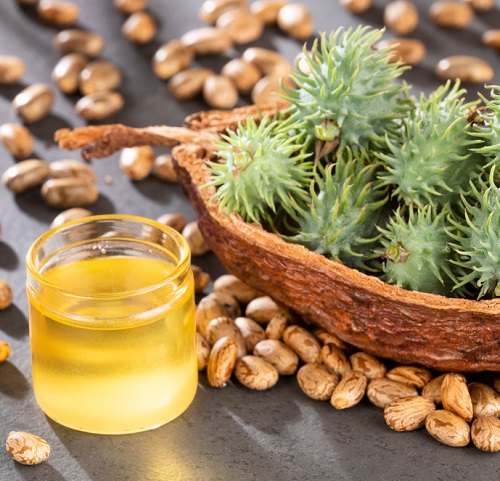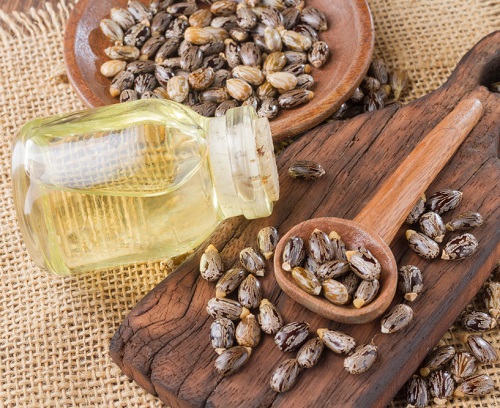Does Castor Oil Freeze? Learn about the oil’s unique properties and the best storage tips in low temperatures!
Does Castor Oil Freeze? This article will help you to get deeper into the scientific aspects of castor oil’s excellent behavior and provide well-researched winter storage guidelines.
What is Castor Oil?
Before discussing if castor oil can freeze, let’s first decode to know what it is. Castor oil is a vegetable oil extracted from the seeds of the Ricinus communis plant, commonly known as the castor oil plant. This pale yellow liquid has been utilized in folk medicine for centuries, famed for its anti-inflammatory and antibacterial properties.
From a scientific perspective, castor oil is classified as a triglyceride, with nearly 90% of its fatty acid chains being ricinoleic acid. The unique chemical structure of castor oil contributes to its robust characteristics, including its resistance to freezing.
Does Castor Oil Freeze?
So, Does Castor Oil Freeze? The straightforward answer is yes, but not in the conditions you might typically think. Castor oil, like other vegetable oils, has a freezing point. However, this point is substantially lower than what we commonly experience in everyday life, even in the chilliest winter weather.
Oils are mixtures of various fatty acids, each with their own individual freezing points. This means that oils do not have one specific freezing point but rather a range in which they gradually become solid. This range is called the “cloud point,” which refers to the temperature at which an oil starts to become cloudy due to the formation of small solid crystals.
The cloud point or Freezing Point of Castor Oil is typically around -12 degrees Celsius (10 degrees Fahrenheit). This is significantly lower than the freezing point of water and lower than the average temperature of a household freezer. Therefore, it is unlikely to see castor oil freeze solid under normal conditions.
Is Castor Oil Good for Headaches? Learn here
Why Castor Oil Has a Low Freezing Point?
Castor oil’s low freezing point can be attributed to its chemical structure. It is predominantly made up of ricinoleic acid, a monounsaturated 18-carbon fatty acid. The presence of the double bond in the ricinoleic acid molecule leads to a ‘kink’ in the structure, which prevents the molecules from packing closely together and solidifying at higher temperatures.
As a result, castor oil remains liquid at temperatures where other oils, especially saturated ones, might solidify.
Freezing Point Depression of Castor Oil
The Freezing point depression of castor oil can be influenced by impurities or additives present in the oil. Pure, high-quality castor oil typically demonstrates a more consistent freezing point, while lower-grade or impure castor oil may exhibit variations in solidification properties due to different fatty acids or contaminants.
Does Castor Oil Freeze in Winter?
Castor oil is composed predominantly of ricinoleic acid, which gives the oil a relatively low freezing point of around -12 degrees Celsius (10 degrees Fahrenheit). Therefore, even during winter, unless exposed to extremely low temperatures, castor oil is unlikely to freeze solid.
That said, castor oil does thicken and become more viscous when exposed to cold temperatures, which may give the impression that it’s freezing. This is a result of some of the fatty acid components starting to solidify or ‘crystallize.’ However, the oil will not lose any of its properties during this process, and it will return to its original consistency when warmed up.
Is Castor Oil Flammable? Learn here
How to Prevent Castor Oil from Freezing in Winter?
During the winter, while it’s highly unlikely that your castor oil will freeze solid due to its low freezing point, it can become thicker and more viscous. This change in consistency might make it harder to use, especially if you’re applying it topically. Follow these guidelines for storing castor oil during colder months:
- Store in a Cool and Dry Place: The first step in preventing castor oil from thickening due to cold is to store it in a cool, dry place. Find a storage area in your home that doesn’t experience major temperature fluctuations, such as a pantry or a cupboard within a temperature range of 15 to 25 degrees Celsius (59 to 77 degrees Fahrenheit) to protect it from extreme temperature fluctuations.
- Keep Away from Light: Exposure to light can degrade the quality of castor oil over time. Storing your oil in a dark location or in an amber or dark-colored bottle can protect it from the harmful effects of light.
- Use Properly Sealed Containers: Keep the container tightly sealed to prevent air and moisture from entering, which can lead to rancidity and spoilage. A proper seal also prevents the entrance of any contaminants.
- Use Glass Over Plastic: Store your castor oil in a glass bottle rather than a plastic one. Some types of plastic can interact with the oil, leading to a degradation in its quality. Glass is generally a safer choice for long-term storage.
Get the Best Storage Tips to Increase Castor Oil Shelf Life here
Quick Tips to Prevent Castor Oil from Freezing
To prevent castor oil from solidifying excessively in cold temperatures, consider the following measures:
- Avoid storing castor oil in unheated areas such as garages or sheds, as these spaces can experience significant temperature drops.
- If possible, maintain the storage environment at room temperature or slightly above to keep the oil more fluid.
- Use smaller bottles or containers that can be quickly warmed up before use. Placing the container in warm water for a few minutes can help restore the oil’s fluidity.
Check out the Excellent Benefits of Castor Oil for Skin, Hair, and Health here.
Key Takeaways
While castor oil can partially solidify in colder temperatures, it does not freeze entirely like water. Castor Oil Freezing point is lower than that of water due to its composition of fatty acids.
While you can’t prevent castor oil from thickening in extremely cold temperatures, you can manage this process by following the right storage practices. And even if it does thicken, rest assured that you can easily restore it to its regular consistency with a bit of gentle warming.
FAQs
1. Does Castor Oil Freeze Completely in Winter?
No, castor oil can freeze partially in winter, but it does not freeze excellent like water. It forms a semi-solid state characterized by increased viscosity and reduced flowability.
2. What Is the Freezing Point of Castor Oil?
The freezing point of castor oil is around -12 degrees Celsius (10 degrees Fahrenheit). However, slight variations may occur depending on factors such as impurities, moisture content, and the specific composition of the castor oil.
3. Can Castor Oil Solidify or Become Thick in Cold Temperatures?
Yes, castor oil can solidify or become thicker in cold temperatures below its freezing point. This is due to the molecular rearrangement of triglycerides in castor oil as the temperature drops.
4. How Does Low Temperature Affect the Viscosity of Castor Oil?
Low temperatures increase the viscosity of castor oil, causing it to become thicker and less fluid—this density change results from the altered molecular arrangement of its triglyceride components.
5. Does the Semi-Solid State of Castor Oil Affect Its Effectiveness?
The semi-solid state of castor oil does not significantly affect its overall effectiveness. Once the oil is warmed or returned to room temperature, it regains its fluidity and original properties, allowing it to function as intended.
6. Is It Necessary to Warm Up Castor Oil Before Use in Colder Climates?
Warming castor oil before use in colder climates is essential to restore its fluidity. Placing the container in warm water for a few minutes can help bring it back to room temperature and ensure a more straightforward application.
7. What Are the Best Practices for Using Castor Oil in Cold Weather?
Some best practices for using castor oil in cold weather include warming the oil slightly, massaging the bottle to redistribute any solidified portions, and applying the oil at room temperature or slightly warmed to enhance absorption and spreadability.
8. Can Repeated Freezing and Thawing Affect the Quality of Castor Oil?
Castor oil generally exhibits good freeze-thaw stability, meaning it can withstand repeated Freezing and thawing cycles without significant quality degradation. However, minimizing exposure to extreme temperature changes is still advisable to maintain its integrity.
9. Does the Freezing Point of Castor Oil Vary with Different Brands or Grades?
The freezing point of castor oil can vary slightly among different brands or grades due to variations in impurities, additives, or the extraction process. However, high-quality castor oil typically demonstrates a more consistent freezing point.
10. Does Freezing Castor Oil Affect Its Beneficial Properties for Skin and Hair?
Freezing castor oil does not significantly affect its beneficial properties for skin and hair. Once the oil is warmed or returned to its original fluid state, it can still provide the same nourishing and moisturizing benefits.




Does freezing slow down degradation of Castor Oil?